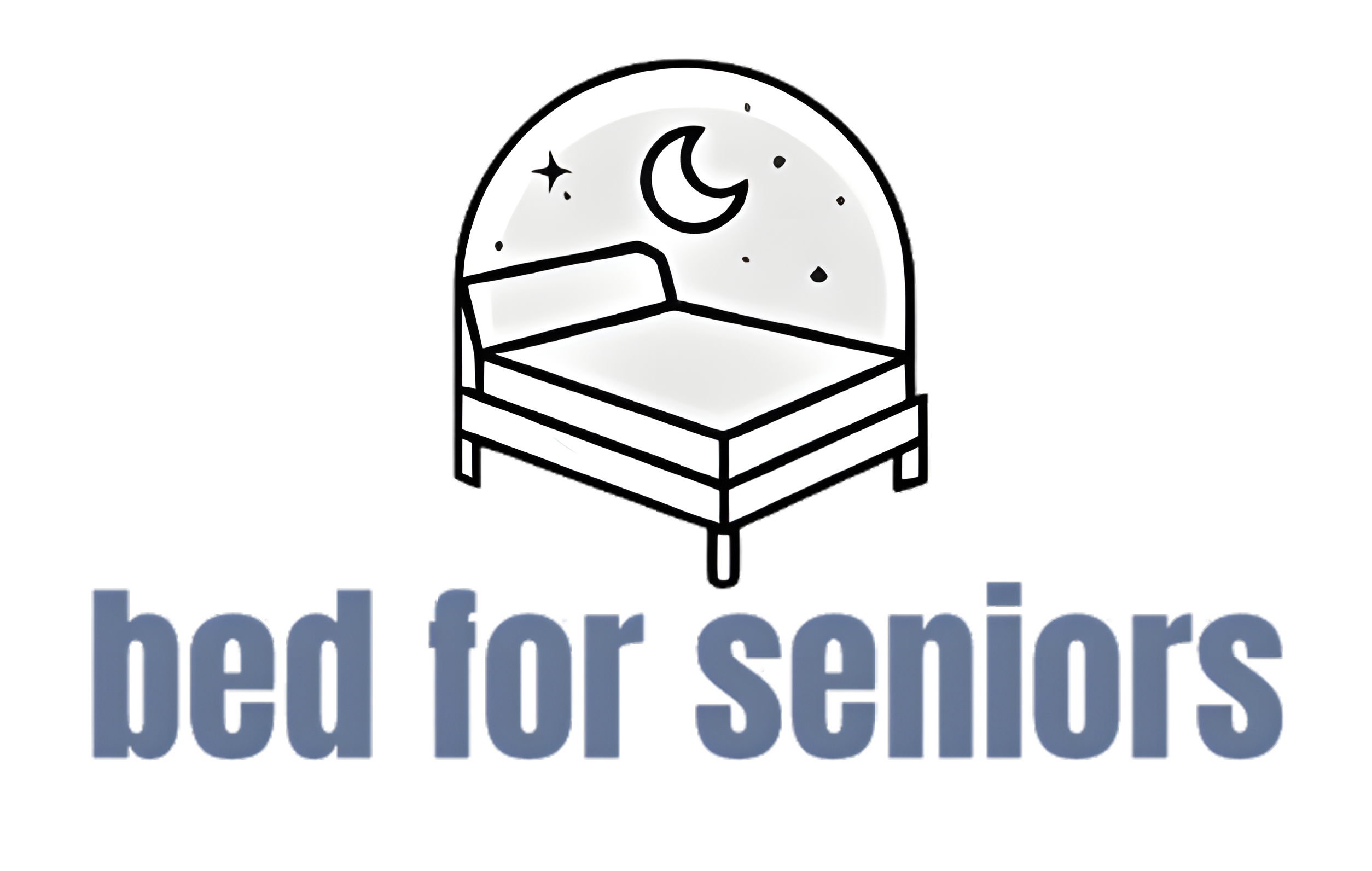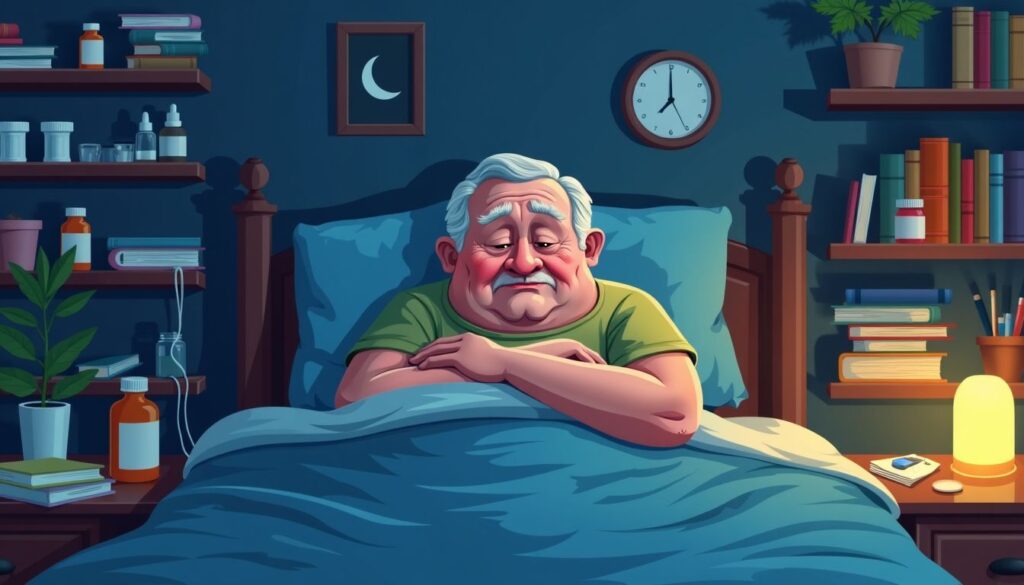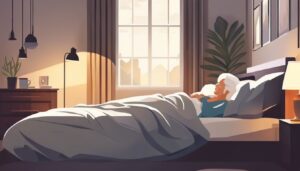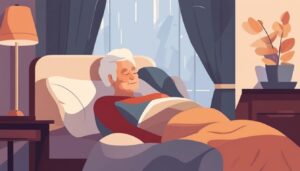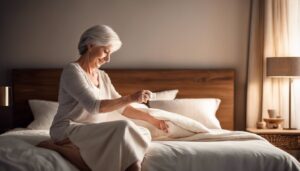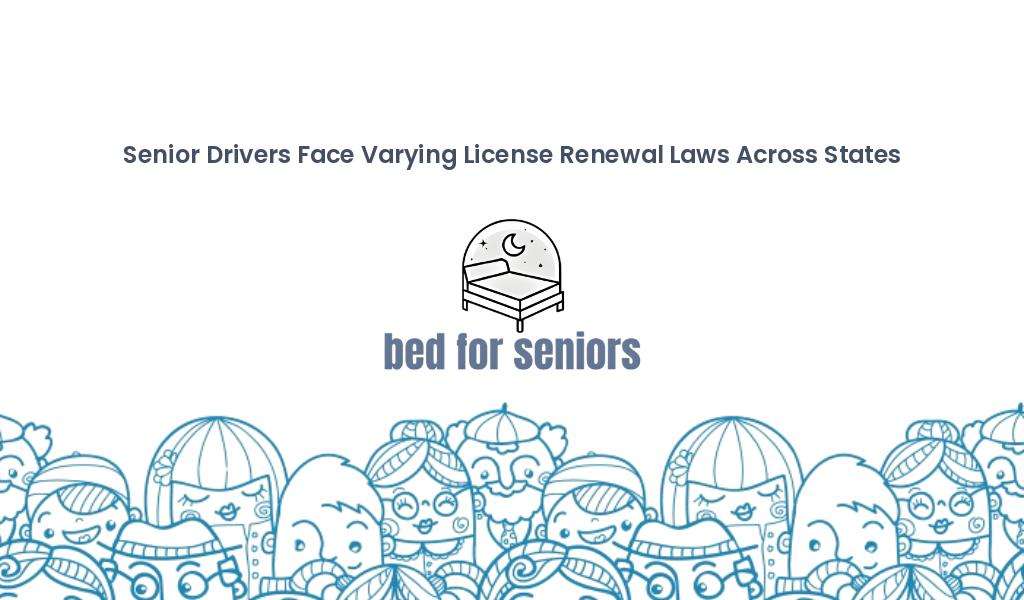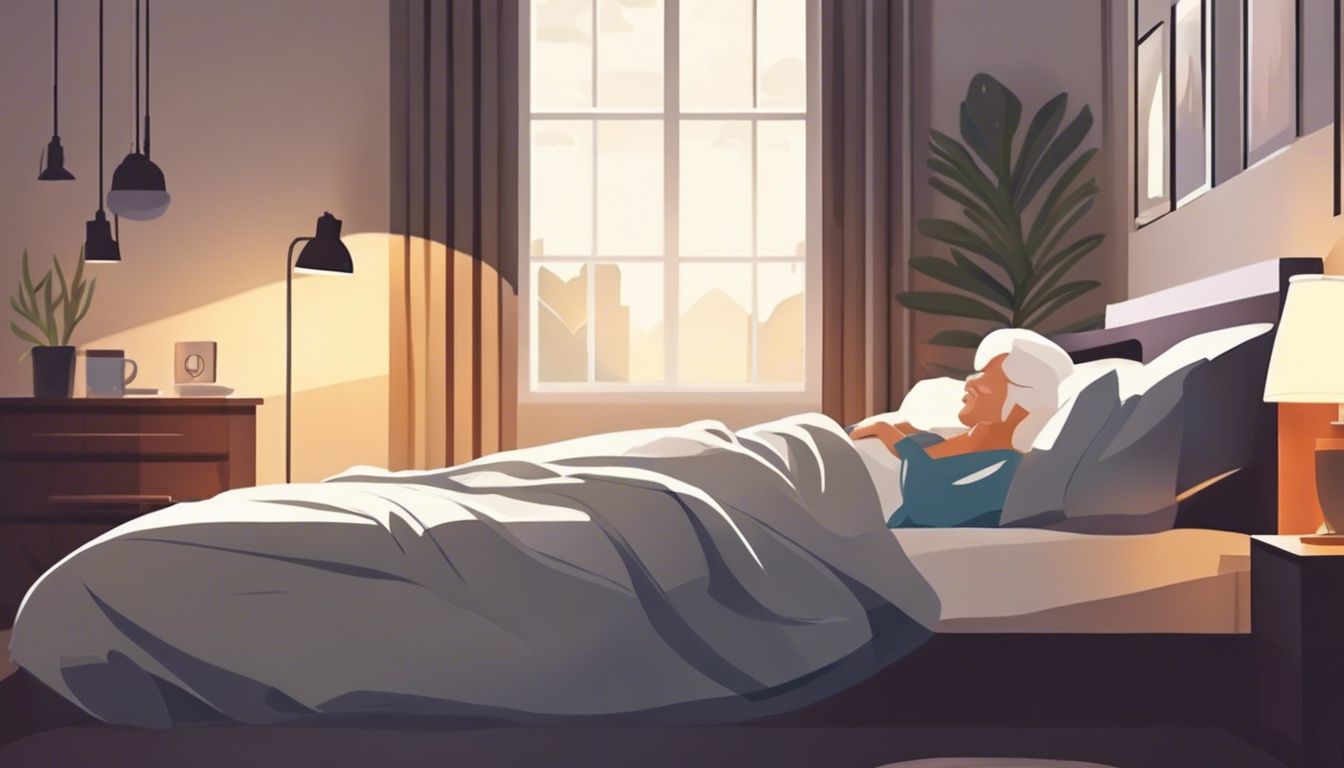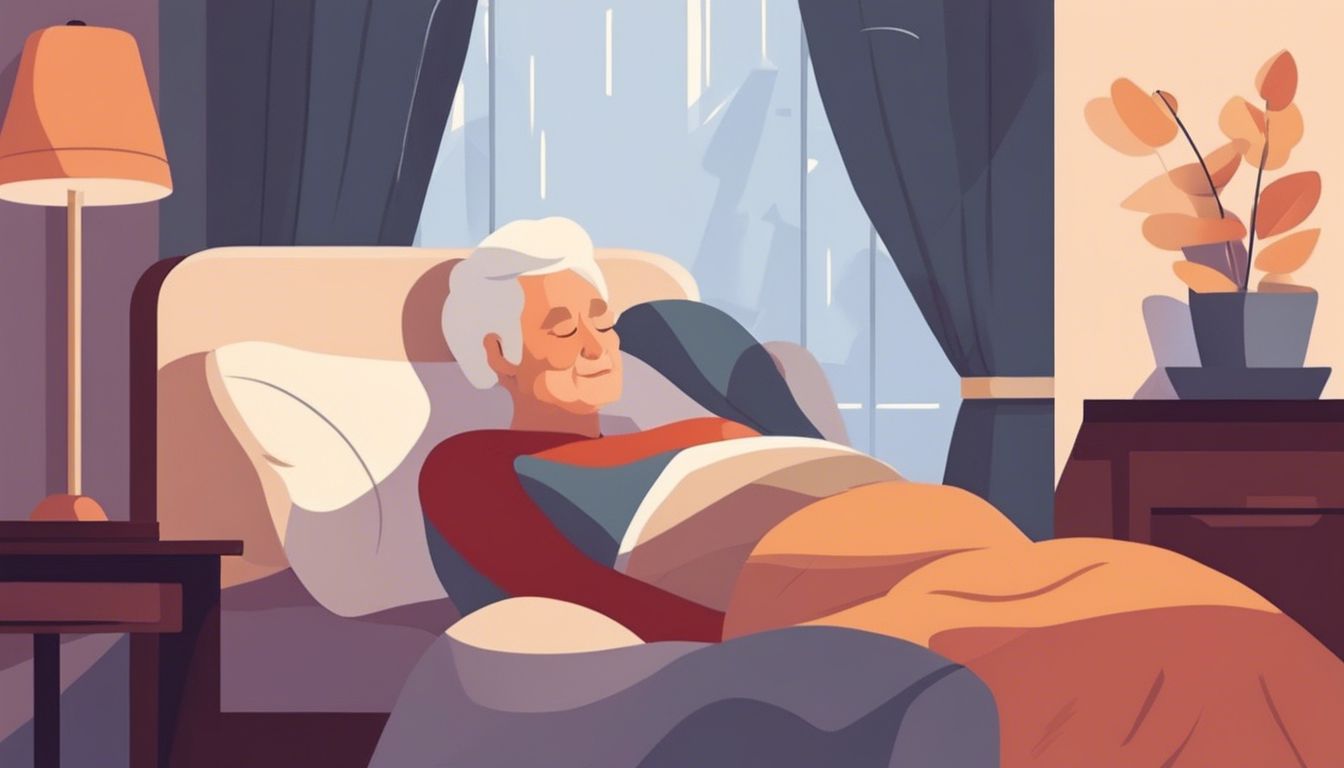Trouble sleeping is not rare among older adults. Many face sleep problems as they age. This article explains why and offers solutions. Stay tuned.
Key Takeaways
- Sleep problems are more common in older adults, with about 50% having issues compared to 16%-22% of the general population.
- Conditions like insomnia, sleep apnea, and restless legs syndrome often cause trouble sleeping for seniors.
- Poor sleep can lead to serious health problems for seniors, including heart disease and increased falls.
- Changes in routine, better sleep habits, and sometimes medical treatments can help improve sleep quality for the elderly.
- Doctors use exams, sleep studies, and mental health checks to figure out why an older adult is not sleeping well.
Prevalence of Sleep Disorders in the Elderly
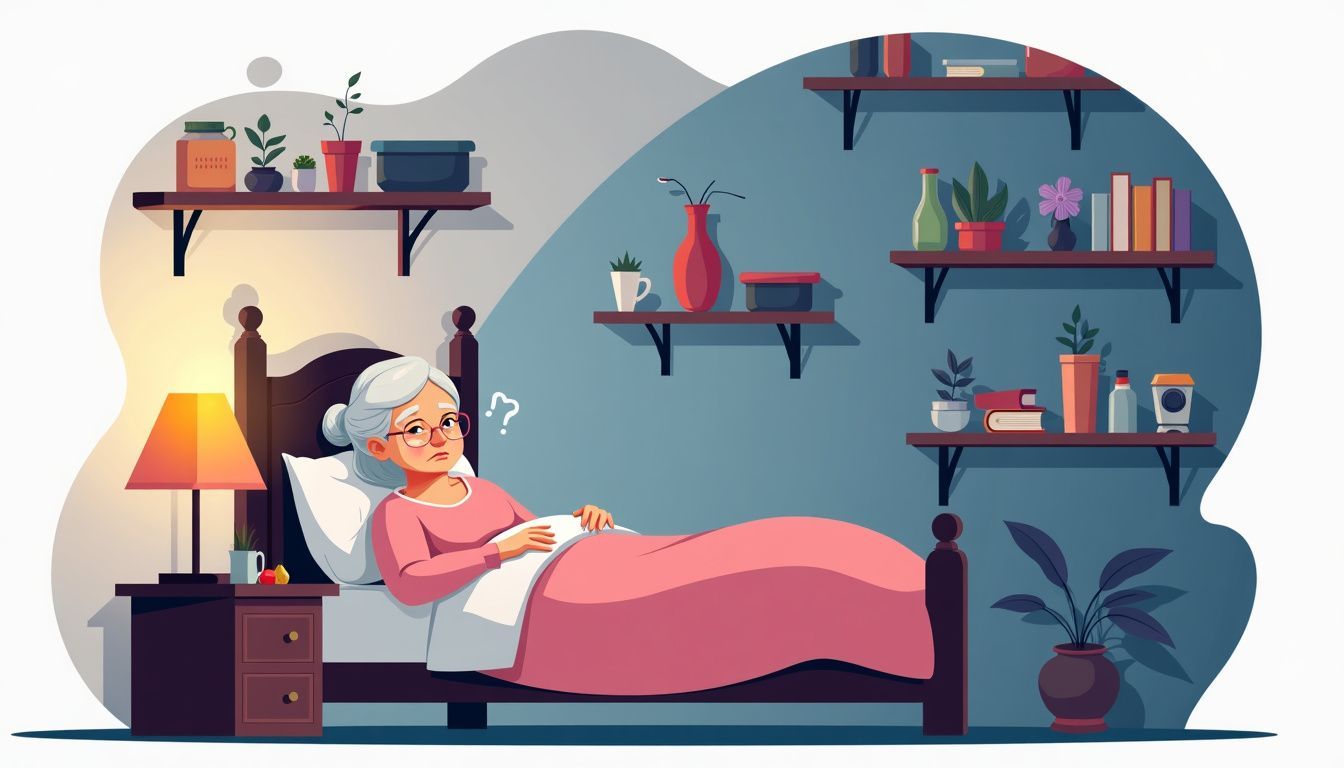
Many older adults have sleep problems. Over half say they have trouble sleeping often. A study found this is true for more than 9,000 people aged 65 and older. By 2030, one in five people in the U.S. will be over 65 years old.
Sleep issues are more common in these older adults than in younger ones.
In general, only about 16% to 22% of people have sleep troubles. But among the elderly, that number jumps to 50%. This shows that as we get older, good sleep becomes harder to find.
Common Sleep Disorders in the Elderly
Elderly folks often face trouble sleeping. They might struggle with issues like not being able to fall asleep, waking up often during the night, or even acting out dreams.
Insomnia
Insomnia troubles many old people. Their bodies don’t follow the sleep-wake cycle like before. This leads to trouble falling asleep and waking up often at night. Life habits and routines play a big part.
To manage insomnia, looking at these habits helps a lot. Making the place where they sleep better can also make a big difference. The FDA has put out warnings about sleep medicines because they can cause bad reactions or strange sleep actions.
Old people face more health issues that disrupt their internal clock. Changes in their sleeping area or routine might help them fall asleep easier and stay asleep longer. Watching what they do during the day, like taking naps or when they drink coffee, is important too.
Small changes can improve their sleep quality greatly.
Sleep Apnea
Moving on from insomnia, let’s talk about sleep apnea. This condition affects up to 70% of older men and 56% of older women. The main signs are loud snoring, obesity, and feeling very sleepy during the day.
To treat it, doctors often suggest a device called CPAP (continuous positive airway pressure) or losing weight. Yet, getting patients to keep using CPAP can be tough—only 40% to 50% stick with it.
Sleep apnea isn’t just about snoring—it can seriously harm health. It makes heart problems worse and can lead to high blood pressure. Knowing this helps caregivers watch for the signs early on.
They need to ensure seniors get checked out if they show symptoms like constant tiredness or heavy snoring. Quick action can make a big difference in managing sleep apnea effectively.
Restless Legs Syndrome
Restless Legs Syndrome makes people feel like they must move their legs. This feeling happens mostly in the evening. The main treatment for this issue is medicine that affects dopamine levels in the brain.
About one-third of older adults deal with leg movements while sleeping. Doctors find out if someone has this by talking to them about their sleep.
Next, let’s talk about Circadian Rhythm Sleep-Wake Disorders.
Circadian Rhythm Sleep-Wake Disorders
Moving from restless legs, we see another big problem – circadian rhythm sleep-wake disorders. This issue messes with the internal clock that tells you when to sleep and wake up. Older adults often face changes in these rhythms, leading them to want to sleep early and wake up too soon.
This can lead to less sleep at night.
A key cause is lower melatonin levels as one gets older. To manage this, sticking to a regular sleep schedule helps. This means going to bed and waking up at the same time every day.
It’s also good for avoiding naps late in the day so nighttime sleep is better.
Rapid Eye Movement Sleep Behavior Disorder
Shifting focus, we explore Rapid Eye Movement Sleep Behavior Disorder. This condition shows up as odd actions during sleep. People with this disorder don’t stay still while dreaming.
Instead, they might talk, shout, or move around a lot. Such activities happen because the muscles that should be relaxed during REM sleep aren’t resting properly.
In the elderly, this can lead to problems because their sleep is already more broken up and they get less deep sleep. Treatment often means looking at other health issues first to see if fixing those helps with the disorder.
Keeping a good bedtime routine can also make things better for them.
Factors Contributing to Sleep Problems in the Elderly
Many things can mess up sleep for older adults. Health issues, medicines they take, feeling sad or stressed, and bad bedtime habits all play a part.
Medical Illnesses
Old people often face sleep troubles because of health problems. Diseases like Alzheimer’s, heart failure, and arthritis cause pain and make it hard to sleep. These aren’t the only ones; thyroid disease and depression also lead to poor sleep.
For instance, someone with heart failure might find it tough to get a good night’s rest due to discomfort or breathing issues.
Taking care of these medical issues can help improve sleep. It means treating the heart condition or managing arthritis pain better. If an old person is dealing with anxiety or has bipolar disorder, getting these under control is key.
This way, their mind stays calm, helping them fall asleep easier at night.
Medications
Just like medical illnesses can affect sleep, so can medications. Some drugs make it hard for the elderly to sleep well. Drugs for high blood pressure or asthma might keep them awake.
Even over-the-counter pills meant to help with sleep can end up making things worse if used too much.
Doctors often use special care when giving sleeping pills to older people. They try treatments that don’t involve drugs first. If needed, they pick medicines carefully to avoid bad reactions with other drugs the senior is taking.
For example, melatonin receptor agonists like ramelteon are FDA-approved and safer for treating sleep disorders in the elderly.
Psychiatric Disorders
Mood difficulties such as depression and anxiety are prevalent in seniors and can exacerbate sleep disturbances. Individuals with bipolar disorder or anxiety, for instance, may struggle with maintaining a good sleep schedule.
These mood difficulties alter their sleep patterns. This is why physicians frequently use evaluations to determine if a person’s sleep is affected by their mood situation. This understanding can aid in selecting the most effective treatment.
Depression makes it challenging for an individual to initiate sleep and to maintain sleep for a sufficient duration. That’s why addressing these mood issues is essential for improved sleep among seniors.
Potential solutions could involve counseling or medication that benefits both mood and sleep.
Poor Sleep Habits
Poor sleep habits hurt seniors’ rest. Staying up late, irregular sleep-wake schedules, and napping too much during the day lead to trouble falling asleep at night. Seniors should avoid caffeine and other stimulants before bed to help their minds relax.
Using phones or watching TV right before bed also makes it hard to fall asleep due to the light these devices give off.
To fix poor sleep hygiene, create a regular bedtime routine. This includes going to bed and waking up at the same time every day, even on weekends. Keeping the bedroom cool, dark, and quiet helps too.
Avoid heavy meals or a lot of fluid close to bedtime. By making these changes, seniors can enjoy better rest and overall health.
Impact of Sleep Disorders on Elderly Health
Sleep problems in the elderly can lead to serious health issues. They affect both their bodies and minds, reducing overall well-being.
Physical Health Effects
Many elders with sleep issues face significant health complications. For instance, disruption in sleep often leads to frequent bathroom visits during the night, which can result in dangerous falls.
This particular risk is prevalent in seniors who have trouble sleeping. Likewise, these problems can negatively impact cognitive function, complicating the processes of thought and memory.
Increased daytime drowsiness often stems from insufficient rest during night hours. This condition is prevalent in persons with chronic insomnia or obstructive sleep apnea. There’s a higher potential for heart diseases and Alzheimer’s disease as well.
Sleep disorders pose a severe detriment to overall physical health and hinder seniors from maintaining a well-rounded healthy lifestyle.
Mental Health Effects
Sleep problems have a big effect on mental health. Poor sleep can lead to depression and anxiety. It messes with the brain’s ability to think clearly. This impacts how happy someone feels every day.
Doctors check for these issues by talking and doing tests. They see if poor sleep is hurting someone’s mind. Solving sleep problems might make people feel better all around.
Quality of Life
Sleep issues hit hard on older adults’ lives. More than half report chronic sleep complaints. This takes a toll, not just on their days but also overall wellness. Good sleep makes a big difference—it lights up their health and mood.
Behavioral changes and mind exercises do wonders for rest. Simple steps lead to big smiles and more active days. Happier, healthier elders—that’s the goal.
Diagnosis and Assessment of Sleep Disorders
Doctors use physical exams and sleep studies to find out what’s causing sleep problems. They might also ask for psychological evaluations to understand more about how the mind affects sleep.
Physical Examinations
Doctors start by asking about sleep habits. They look for signs of sleep problems. This can show if the person has trouble like insomnia or sleep apnea. They check heart rate and blood pressure to find any health issues that might make sleeping hard.
They also watch how the person moves their limbs. This helps find disorders such as restless legs syndrome or periodic limb movements. The goal is to spot anything unusual that affects sleep, like breathing problems during rest.
Sleep Studies
Sleep studies, like polysomnography, are sure ways to find out about sleep disorders. They check things like stages of sleep and breathing problems at night. Doctors use them to see how bad conditions like sleep apnea are.
This test happens in a special lab and watches the person while they sleep.
Foley DJ, Bliwise DL, and others have done research that helps understand these issues better. Sleep studies give clear data on disrupted sleep or total sleep time. This makes it easier for doctors to choose the best treatment for seniors with sleeping problems.
Psychological Evaluations
Psychological evaluations show how mental health affects sleep. They find out if psychiatric disorders cause sleep issues. Doctors look at lifestyle and habits too. These checks are key for seniors facing trouble with sleeping, such as insomnia or nighttime restlessness.
Mental health matters a lot for good sleep. Stress, worry, and mood disorders can make sleeping hard. So, getting help from therapists might improve how well someone sleeps each night.
They use tools like relaxation techniques to help the mind calm down before bedtime.
Treatment Options for Sleep Disorders in the Elderly
For sleep troubles in older adults, options range from lifestyle changes to medical interventions… We cover everything from therapy and meds to machines that help with breathing at night.
Keep reading for insights into better rest.
Behavioral and Psychological Interventions
Sleep issues in the elderly need special attention. Behavioral and psychological interventions help a lot.
- Set a regular sleep schedule. Go to bed and wake up at the same time every day.
- Create a bedtime routine. Doing quiet activities like reading can improve sleep quality.
- Reduce naps, especially long ones during the day to avoid nighttime sleeplessness.
- Limit caffeine and heavy meals before bedtime. They can disrupt sleep.
- Make the bedroom comfortable for sleeping. Keep it dark, quiet, and cool.
- Exercise regularly but not right before bed as it helps with deeper sleep.
- Address mental health issues through counseling or therapy which aids in reducing anxiety related insomnia.
- Practice relaxation techniques such as deep breathing or meditation to ease into sleep.
- Cognitive-behavioral therapy targets thoughts and behaviors that disrupt sleep and is effective for treating insomnia.
- Stay away from screens like TVs or smartphones before bedtime; their light affects your circadian rhythms.
Each step addresses specific barriers to good sleep, providing direct ways to improve rest for the elderly.
Pharmacotherapy
Doctors must be careful with sleep meds for older people. They use drugs like ramelteon, a melatonin receptor drug the FDA says is okay. These drugs can mix badly with other meds and cause unwanted effects.
The FDA warns that some sleep meds can lead to severe allergies.
Older adults taking these meds need close watching. They might face risks but also could get much-needed rest. Each person reacts differently to meds, so finding the right one takes time.
Caregivers play a big role in this process by keeping an eye on changes and talking to doctors often.
Positive Airway Pressure for Sleep Apnea
Positive Airway Pressure, or PAP, treats sleep apnea. It uses a machine to help people breathe easier while they sleep. For those with obstructive sleep apnea (OSA), it’s a common solution.
The machine sends air through a mask to keep the sleeper’s airways open. This helps stop pauses in breathing during the night. Up to 70% of older men and 56% of older women may need this treatment.
Using PAP can be hard at first. About 40% to 50% of older adults stick with it as advised. Losing weight also helps manage sleep apnea, making PAP work better or not needed as much.
Improving Sleep Hygiene
Good sleep hygiene helps seniors get better rest. It includes simple steps for a deeper sleep.
- Set a strict bedtime and wake-up time, even on weekends.
- Keep the bedroom dark, quiet, and at a comfortable temperature.
- Exercise daily but avoid vigorous activities close to bedtime.
- Limit daytime naps to 30 minutes or less.
- Avoid caffeine, alcohol, and large meals before bed.
- Make the bed comfortable with supportive pillows and mattresses.
- Use the bed only for sleep and intimacy to strengthen the association between bed and sleep.
- Create a relaxing pre-sleep routine like reading or taking a warm bath.
- Block out noise with earplugs or use white noise for constant soothing sounds.
- Get sunlight exposure during the day to help maintain a healthy sleep-wake cycle.
These steps promote regular sleeping patterns and improve overall sleep quality for seniors.
How Can Seniors Improve Their Sleep Quality?
Elders often find it hard to sleep well. Small changes can make big improvements in their sleep quality.
- Stick to a sleep schedule. Go to bed and wake up at the same time every day.
- Create a bedtime routine. Read or listen to calming music before bed.
- Make the bedroom comfortable for sleeping. Keep it dark, quiet, and cool.
- Avoid caffeine and heavy meals late in the day.
- Stay active during the day but avoid strenuous exercise close to bedtime.
- Limit daytime naps to 30 minutes or less.
- Use the bed only for sleep and intimacy. Don’t watch TV or use gadgets in bed.
- Manage stress with techniques like meditation or deep-breathing exercises.
- Seek treatment for medical issues that disturb sleep, such as chronic pain or acid reflux.
- Review medications with a doctor, especially those that might affect sleep, like antihypertensives or sedatives.
- Improve sleep hygiene by keeping a tidy and inviting bedroom environment.
- Get sun exposure during the day to help keep your body’s internal clock set right.
These steps can significantly enhance how well seniors rest at night, leading to better health and happiness overall
Conclusion
Sleep problems definitely affect many older adults. These issues range from trouble falling asleep to waking up often during the night. Conditions like Alzheimer’s disease and arthritis play a big role.
So do coffee and some meds. To fight these sleep troubles, seniors can try better sleep habits or even get help from doctors. In short, yes, many elders face sleep challenges, but steps exist to improve their restful nights.
FAQs
1. What are some common sleep problems in the elderly?
Common sleep issues include difficulty falling asleep, restless leg syndrome, and REM sleep behavior disorder. Elderly individuals may also experience fragmented sleep or suffer from sleep-disordered breathing conditions like obstructive sleep apnea.
2. How do medical conditions affect sleep in older adults?
Medical conditions such as cardiovascular disease, Alzheimer’s disease, Parkinson’s disease, and other neurodegenerative disorders often disrupt normal sleeping patterns… These can lead to daytime sleepiness or periodic limb movement disorder.
3. Are there tests to diagnose these sleeping problems?
Yes— a polysomnogram or “sleep study” helps identify specific issues with an individual’s “sleep architecture.” It can detect central sleep apnea and other abnormalities that contribute to lack of quality rest…
4. Can medication help manage these sleeping issues?
Sleep medication is one option for managing these problems… However, long-term adherence is crucial for effectiveness… Others may benefit from oral appliances or continuous positive airway pressure (CPAP) therapy especially for those with severe forms of apnoea…
5. Do lifestyle factors play a role in senior citizens’ disrupted slumber?
Lifestyle factors such as jet lag due to travel across time zones, use of recreational drugs, surgery recovery times all impact circadian rhythm.. This disruption can result in various circadian rhythm sleep disorders..
6. Is frailty related to poor night-time rest among seniors?
Indeed! Frailty often correlates with dementing disorders causing nighttime disturbances.. Additionally disruptions within suprachiasmatic nucleus (SCN), our internal body clock regulator further exacerbates the issue leading to poor quality shut-eye…
